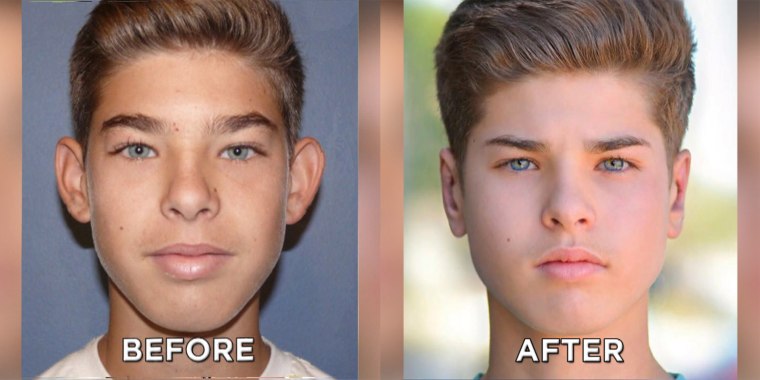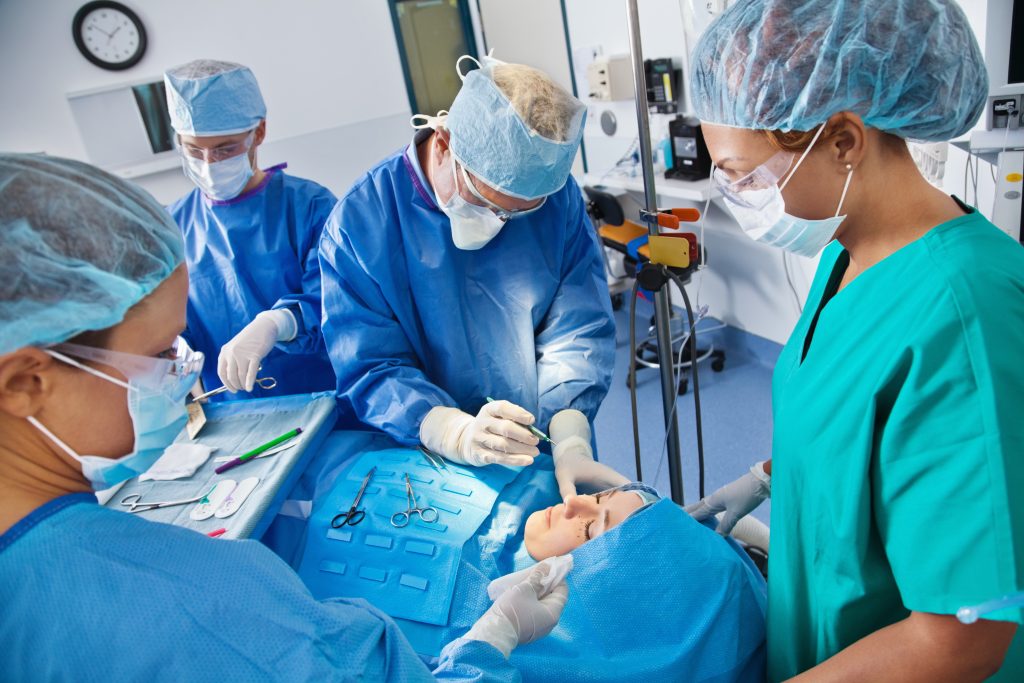Mommy Makeover Rancho Cucamonga: Redeem Your Pre-Baby Body with Tailored Procedures
Mommy Makeover Rancho Cucamonga: Redeem Your Pre-Baby Body with Tailored Procedures
Blog Article
Exploring the Psychological and Social Variables That Drive Individuals to Think About Cosmetic Surgery as a way of Enhancement
The decision to seek cosmetic surgical treatment usually prolongs beyond plain aesthetics, linking with social and psychological characteristics that merit thorough assessment. Aspects such as self-confidence, pervasive societal appeal requirements, and the pervasive impact of social media sites merge to shape individual motivations for medical improvement. As these impacts become increasingly popular, understanding the underlying cultural and emotional contexts is vital. What continues to be to be discovered is the extensive effect these variables have not only on individuality but likewise on wider societal norms and worths surrounding elegance and acceptance.
The Duty of Self-Esteem
Self-worth dramatically affects an individual's decision to seek cosmetic surgical treatment. People with low self-worth usually perceive themselves in an unfavorable light, leading to feelings of insufficiency regarding their physical appearance. This adverse self-perception can drive them to seek surgical treatments as a technique of enhancing their self-image. The need for improvement in one's appearance is regularly linked to a belief that such modifications will certainly elevate their overall self-regard and confidence.

Inevitably, the function of self-esteem in the decision-making procedure relating to plastic surgery highlights the complex interaction between body image, personal satisfaction, and psychological health and wellness. Comprehending this relationship is critical for health care specialists to guarantee that people are making notified decisions rooted in sensible expectations and psychological health.
Social Appeal Requirements
Influenced by prevalent media portrayals and cultural stories, societal appeal standards play a crucial function in shaping people' perceptions of their own bodies. These standards are typically identified by an idealized form of appeal that emphasizes traits such as slimness, symmetry, and youthfulness. As these suitables are continued via numerous channels, including tv, film, and marketing, individuals often internalize these messages, causing discontentment with their natural appearance.
The implications of these social standards prolong past visual choices; they can impact self-esteem, psychological health and wellness, and social connections. Individuals who perceive themselves as falling short of these criteria might experience sensations of insufficiency, motivating a wish for plastic surgery as a means of accomplishing social approval. This search is often fueled by the idea that satisfying these suitables will certainly enhance not just physical look however likewise social standing and individual satisfaction.

Impact of Social Media Site
The effect of societal beauty criteria is additional enhanced by the increase of social media sites systems, where curated images and idealized representations of beauty are ubiquitous. Individuals are regularly revealed to filteringed system and edited photos, which typically depict unattainable physical features. This direct exposure grows a society of contrast, leading individuals to assess their own look against these frequently unrealistic criteria.
Social network influencers and go stars regularly advertise cosmetic treatments, normalizing the concept that medical enhancements are a viable means for achieving social ideals (plastic surgery rancho cucamonga). The presence of these enhancements can create a perception that undergoing plastic surgery is a common technique, thus affecting people to take into consideration similar interventions as a pathway to enhanced self-worth and social approval
Additionally, the interactive nature of social media sites enables for instant responses via likes and remarks, even more enhancing the need to adapt preferred elegance standards. Such communications can worsen sensations of insufficiency and drive individuals toward cosmetic surgical procedure as a way of obtaining recognition. Inevitably, social media sites plays an essential duty fit assumptions of beauty, which significantly influences the decision-making procedures surrounding cosmetic surgical procedure.

Social Viewpoints on Look
Across various cultures, understandings of look are deeply rooted in historic, social, and economic contexts, forming individuals' views on elegance and value. In several cultures, appearance acts as a significant pen of identity, influencing social standing, specialist possibilities, and personal connections. For instance, in click over here now some cultures, light skin is commonly connected with wealth and opportunity, while others may idealize darker skin tones as symbols of strength and authenticity.
In addition, traditional charm requirements are often perpetuated with social stories, media representations, and family affects, causing differing ideals across different regions (plastic surgery rancho cucamonga). In Western cultures, the focus on youth and physical conditioning often drives individuals toward cosmetic enhancement, while in specific Eastern societies, even more subtle changes aligned with typical aesthetic appeals might be favored
Globalization and the expansion of electronic media have actually even more complicated these dynamics, creating a hybridization of appeal perfects that transcends geographical limits. As individuals increasingly browse these social narratives, the pressure to satisfy certain appearance standards can result in the wish for plastic surgery, reflecting an intricate interaction of personal ambitions and cultural worths. Recognizing these social viewpoints is crucial in addressing the inspirations behind plastic surgery factors to consider.
Psychological Effects of Aesthetic Surgical Treatment
Lots of individuals seeking cosmetic surgical procedure record experiencing profound emotional impacts that can considerably change their self-perception and emotional well-being - plastic surgery rancho cucamonga. The desire for physical improvement commonly originates from underlying concerns such as reduced self-confidence, body dysmorphic disorder, or societal stress regarding elegance criteria. For some, the prompt post-operative phase can cause a short-term boost in confidence and fulfillment with their appearance, fostering a sense of empowerment
Nonetheless, these positive feelings might not be enduring. Study indicates that while some people experience enhanced self-confidence, others might encounter heightened stress and anxiety or depression if their expectations are not fulfilled. This disparity can occur from unrealistic ideals bolstered by media depiction and social stories surrounding elegance.
Moreover, the mental ramifications of plastic surgery expand beyond the individual. Relationships with friends and family might be stressed as social characteristics change, resulting in feelings of seclusion or alienation. Eventually, the psychological effects of cosmetic surgical procedure are complicated and multifaceted, requiring cautious factor to consider by both potential patients and doctor to guarantee enlightened decision-making and sensible expectations.
Final Thought
In conclusion, the decision to seek cosmetic surgical procedure is significantly affected by a combination of self-worth issues, societal elegance criteria, and cultural point of views on look. The prevalent reach of social networks better intensifies these stress, promoting impractical suitables that individuals usually aim to acquire. Comprehending these this hyperlink emotional and social factors is important for addressing the inspirations behind cosmetic surgical procedure, highlighting the requirement for an extra nuanced conversation bordering charm and self-acceptance in modern society.
The decision to go after cosmetic surgical procedure often expands beyond simple aesthetics, intertwining with social and emotional characteristics that warrant comprehensive assessment. Eventually, social media plays an essential role in shaping assumptions of elegance, which significantly impacts the decision-making procedures bordering cosmetic surgery.
As people significantly browse these social narratives, the stress to conform to specific look requirements can lead to the need for cosmetic surgical procedure, mirroring a complex interaction of cultural values and individual aspirations.In conclusion, the choice to pursue cosmetic surgical procedure is considerably affected by a mix of self-confidence issues, societal appeal requirements, and social point of views on look. Comprehending these emotional and social variables is necessary for addressing the motivations behind cosmetic surgery, highlighting the need for a more nuanced discussion surrounding appeal and self-acceptance in modern society.
Report this page